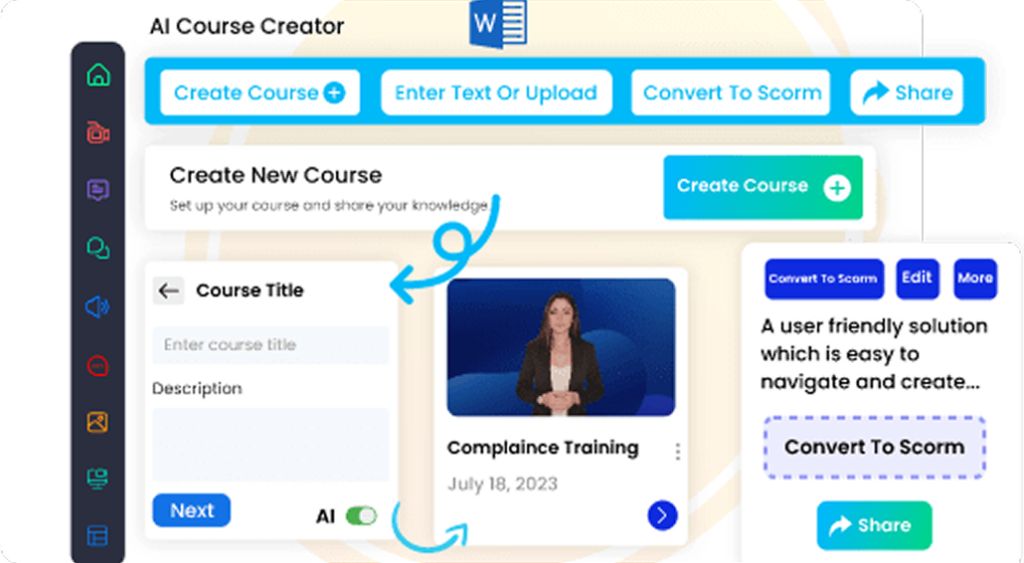Effective performance management training for employees is essential for driving success in today’s workplace. Organizations that invest in employee training can see significant returns in terms of productivity, engagement, and overall performance. But to truly maximize the benefits, performance management needs to be consistently developed and aligned with both employee and organizational goals. This blog explores what performance management training is and how it can help your team achieve success.
What is Performance Management Training?
Performance management training is a structured program designed to help managers and employees develop the skills necessary to assess, monitor, and improve job performance. This training focuses on setting clear expectations, providing feedback, and creating a culture of continuous improvement. It ensures that managers are equipped to guide their teams in meeting goals and improving their skills over time.
The goal of this training is to build a performance-driven environment where employees know what is expected of them, how to meet these expectations, and how their contributions align with the overall success of the organization.
Why is Performance Management Training Important?
Performance management training plays a vital role in fostering a high-performance culture. By training managers to set clear expectations, provide constructive feedback, and manage employee performance effectively, companies can boost engagement, productivity, and job satisfaction.
Setting Clear Expectations for Success
Clear expectations are the foundation of a successful performance management process. Employees need to understand what is expected of them to be productive and focused. Through effective training, managers can learn how to set realistic, achievable goals for their teams, ensuring everyone is aligned on objectives.
Driving Continuous Improvement
Performance management is not a one-time event but an ongoing process. Managers must be equipped to deliver regular feedback and conduct frequent performance check-ins. This helps identify potential issues early and keeps employees on track to meet their goals. Continuous feedback helps avoid surprises during annual reviews and fosters a culture of growth.
How to Train Managers on Performance Management
Training managers is a crucial step in creating a performance-driven culture. Managers are responsible for implementing performance management strategies, giving feedback, and supporting employees in achieving their goals. Here’s how you can train managers to lead effective performance management programs:
1. Focus on Communication Skills
Effective communication is at the heart of performance management. Managers need to be able to clearly communicate performance expectations, deliver feedback, and address any issues that arise. Training managers to have open, honest, and empathetic conversations helps build trust and motivates employees to improve their performance.
2. Implement Regular Performance Reviews
Rather than relying solely on annual performance reviews, training managers to conduct frequent check-ins allows for real-time feedback and adjustments. This approach ensures employees stay on track and are aware of their strengths and areas for improvement throughout the year.
3. Teach Data-Driven Decision Making
Data is key to objective decision-making in performance management. Training managers to analyze performance metrics, track key performance indicators (KPIs), and use data to guide feedback and decisions helps them make informed choices. Data-driven insights improve the accuracy of performance evaluations and help managers provide actionable advice to employees.
Best Practices for Performance Management Training for Employees
While training managers is essential, it’s equally important to train employees in performance management. When employees understand how to manage their own performance, they become more proactive in their development. Here are some best practices to incorporate into your employee training:
1. Promote a Growth Mindset
Encourage employees to adopt a growth mindset—believing that they can improve with effort, learning, and perseverance. When employees embrace this mindset, they are more likely to take ownership of their development and actively seek opportunities to grow.
2. Set SMART Goals
SMART goals (Specific, Measurable, Achievable, Relevant, and Time-bound) are a proven framework for performance management. By teaching employees to set these types of goals, managers can ensure that they know exactly what is expected of them and can track their progress effectively.
3. Encourage Peer Feedback
Feedback should not only come from managers. Encouraging employees to give and receive feedback from their peers fosters collaboration, builds trust, and creates a culture of mutual growth. Peer feedback can help identify strengths and opportunities for improvement in a more open, constructive environment.
To further support employee growth, explore our Course Catalog for programs designed to enhance performance and professional skills.
How Technology Can Enhance Performance Management Training
Technology plays a pivotal role in enhancing performance management training. By leveraging Learning Management Systems (LMS) and other digital tools, organizations can deliver training materials more efficiently and provide employees with continuous learning opportunities. Here’s how technology can support performance management training:
Using LMS for Training Delivery
Learning Management Systems provide a centralized platform for delivering training content. This includes video tutorials, webinars, assessments, and performance tracking tools. LMS platforms make it easier for managers and employees to access training materials anytime, anywhere, allowing for flexible learning.
Interactive Learning Experiences
Interactive learning elements such as quizzes, simulations, and real-life scenarios can enhance the training experience. These tools help employees and managers practice real-world performance management situations, improving engagement and retention. Interactive content also allows employees to apply what they’ve learned in a safe, controlled environment.
How CogniSpark AI Can help you?
To meet the evolving demands of workplace learning, CogniSpark AI offers a future-ready training solution that blends intelligence, interactivity, and scalability. Its integrated AI Tutor delivers real-time feedback, personalized coaching, and scenario-based learning to help employees build essential skills with confidence. Whether it’s communication, compliance, leadership etc CogniSpark AI ensures that learning is engaging, adaptive, and outcome-focused.
The platform’s built-in authoring tool allows organizations to rapidly create, customize, and update content to reflect company values, tone, and evolving business requirements. This ensures training remains relevant, up-to-date, and aligned with strategic goals.
CogniSpark AI also integrates seamlessly with any existing LMS, enabling centralized tracking, streamlined deployment, and continuous improvement based on performance data. From onboarding to upskilling, CogniSpark AI empowers organizations to build a smarter, more capable workforce through intelligent training experiences.
Conclusion: The Impact of Performance Management Training on Success
Investing in performance management training for employees is a long-term strategy that pays off in enhanced productivity, employee engagement, and overall organizational success. When both managers and employees are equipped with the tools, knowledge, and mindset needed to excel in performance management, organizations foster a culture of continuous improvement.
By setting clear goals, encouraging regular feedback, and using data-driven insights, managers can guide their teams to reach new levels of performance. And by providing employees with the skills to manage their own development, organizations can unlock the full potential of their workforce.
Performance management training isn’t just about meeting goals—it’s about empowering your employees to thrive and grow, making it a key element of organizational success.






















